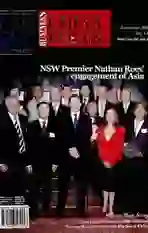Bigger Cap for Foreign Stock Investors
2009-01-27
The Chinese State Administration of Foreign Exchange (SAFE) increased the upper limit for the investments from the Qualified Foreign Institutional Investors (QFIIs), allowing them to increase their shares in the Chinese A-share market.
The QFII program is a Chinese program that was launched in 2002 to allow licensed foreign investors to buy and sell yuan-denominated A-shares in Chinas mainland stock exchanges (in Shanghai and Shenzhen). Chinese mainland stock exchanges were previously closed off to foreign investors due to Chinas exercise of tight capital controls which restrict the movement of assets in-and-out of the country.
Now, the upper limit has been increased from 800 million US dollars to 1 billion US dollars. A single foreign investor can further improve its shares in A-share market in Mainland China.
In order to improve the management of the foreign exchanges and to promote the implementation of the QFII program, the SAFE issued the Regulation on Domestic Securities Investment by Qualified Foreign Institutional Investor (hereafter the Regulation).
Compared with the Temporary Regulation on Domestic Securities Investment by Qualified Foreign Institutional Investor issued in 2002, the Regulation increases maximal amount of a single QFIIs investment from 800 million US dollars to 1 billion US dollars and allows the QFIIs to open different kinds and types of accounts. In addition, the lock-up period of principals is reduced to three months upon mid- and long-term investment in pension fund, endowment fund and open-end fund in China. The lock-up period of the other qualified investors is set at one year. The SAFE also defines the management principles of the open-end fund in China and offers conveniences in opening accounts, management of lock-up period, capital encashment, purchasing and redemption.
According to the relevant director of the SAFE, the increase of the maximal amount of the single QFIIs investment is on the one hand attributed to the total amount of QFIIs investments which has been increased to 30 billion US dollars; on the other hand, it is to encourage the QFII organizations with wonderful performance in businesses to get into the Chinese security market to improve the scale effect of the institutional investors.
Previously, China conducted examinations and approvals over the QFIIs in both quality and amount of investments. The foreign investors take comparatively smaller quote in the Chinese A-share market. The quota for each organization varies from 50 million to 800 million US dollars. From 2002 to 2007, the amount of QFIIs investments was increased from 15 billion US dollars to 30 billion US dollars. As of the end of August, 2009, 87 organizations have already got the QFII quality, 76 of which have got the investment quota approved by the SAFE. The total amount of investment has reached 15.32 billion US dollars. The QFII organizations have already collected 13.846 billion US dollars.
The higher upper limit for the investment and the abundant fluidity of the capital will agitate the enthusiasm of the QFIIs in adding their investments in the Chinese A-share market. According to the estimation of the experts, after the implementation of the Regulation, there will be hundreds-of-billion yuan put into the A-share market, which is helpful for maintaining the stability of the market. But the experts hold different opinions towards the added amount because their calculating methods are different. Some of them think that each of the 76 organizations which have got the approved quota will add 200 billion US dollars and the total amount of added investments will be 15.2 billion US dollars. The other experts think that the total quota has been increased to 30 billion US dollars. If reducing the 13.846 billion US dollars which have been injected to the market, there will be another 16.154 billion US dollars waiting for being put into the Chinese A-share market.
However, there are some experts thinking the market is too optimistic for the effect of the new policy. The foreign investors may not take positive actions to respond the new policy in a short time.
According to the data, the QFIIs, influenced by the international financial crisis and the shock of the Chinese stock market, are not very vibrant in the movements into the Chinese A-share market in these two years. The insiders said that some qualified QFIIs have to give up the opportunity of investments because they can not make clear of the developing trend of the market.
In addition, the QFIIs are far away from the leading role of the Chinese A-share market. “The outlook of the A-share market mainly depends on the development of the Chinese economy and the profit level of the listed companies,” said Guo Tianyong, professor from the Central University of Finance and Economics.
In his opinion, it is too optimistic to believe that hundreds of billion yuan will be put into the A-share market encouraged by the new policy. “The QFIIs should consider the global situation. If they are bullish on the Chinese market, they may not only be interested in the stock market. The security market may also be a pie for them. Therefore, I never believe that the QFIIs only focused on the Chinese stock market,” said Guo.
Lv Suiqi, professor from Beijing University, thought that the QFIIs are never the hero of the Chinese A-share market. But after the declaration of the new policy, some domestic institutional investors seem to be more joyful than the foreign investors. They also want to make use of this opportunity to increase their share prices.”
